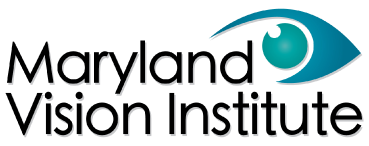Can I Stop Wearing Glasses After Laser Eye Surgery?
August 8, 2024
For many people, the outcome of laser eye surgery is fully-corrected and clear vision. For these people, getting a vision-correcting procedure like LASIK means they get to reduce their dependence on glasses and contact lenses for clear vision.
For other people, laser eye surgery improves their vision, but does not fully correct it to 20/20. Some people will still need to wear some type of corrective eyewear after laser eye surgery, depending on each person.
Keep reading to learn more about laser eye surgery, including whether or not you might be able to gain greater visual freedom!
What Factors Can Affect Laser Eye Surgery Outcomes?
While the primary goal of laser eye surgery is to reduce the need for glasses or contact lenses, many factors contribute to the outcome of laser eye surgery. They include the following:
Type and Severity of the Refractive Error to be Corrected
People with mild to moderate myopia (nearsightedness), hyperopia (farsightedness), and astigmatism are more likely to achieve excellent vision results and no longer need corrective eyewear after laser eye surgery. People with higher degrees of these refractive errors may still need glasses for certain activities, like reading or driving.
Age
Younger individuals tend to have healthier corneas, which can help them achieve better laser eye surgery outcomes. Generally, a person’s eye prescription is likely to remain stable in their twenties and thirties, providing long-lasting results from the procedure.
Individuals over forty may still have to wear glasses after laser eye surgery. This is usually due to the natural aging of the eye.
As a person’s eye ages, the lens of their eye hardens and causes a condition called presbyopia, or age-related farsightedness. People who have had their vision corrected with laser eye surgery may still need to wear glasses for reading if they develop presbyopia.
Individual Recovery
Not everyone recovers the same way after laser eye surgery. The way an individual’s eyes heal can affect the final outcome.
Some people experience slight over- or under-corrections and may still need glasses to see clearly at all distances.
What Types of Laser Eye Surgery Are There?
You can increase your chances of optimal results and glasses-free vision by getting the laser eye surgery that is right for you. While many people are good candidates for LASIK, the most popular and well-known laser eye surgery, it is not right for everyone.
The different types of laser eye surgery are:
LASIK
LASIK, which stands for Laser In-Situ Keratomileusis, is the most commonly performed vision correction surgery today. It can correct the vision of people with myopia, hyperopia, and astigmatism.
During LASIK, an eye surgeon uses a laser to create a flap on the surface of the cornea. When that flap is lifted, the LASIK surgeon uses the laser to reshape the cornea, correcting the refractive error.
LASIK is a good choice for people who are at least eighteen years old, have healthy eyes, and have no history of eye disease. They should have had a stable eye prescription, within a certain range, for at least a year.
PRK
PRK, which stands for Photorefractive Keratectomy, is another laser eye surgery. It can be used to correct the same refractive errors as LASIK.
During PRK surgery, an eye surgeon entirely removes the outermost layer of the cornea, the epithelium. Once exposed, the PRK surgeon uses a laser to reshape the cornea, as in LASIK.
To protect the eye while it regrows the epithelium, it is covered with a special contact lens, which acts like an eye bandage. Because the eye must regrow the epithelium, total recovery times for PRK can be longer than for LASIK.
PRK might be recommended for people with thin corneas, corneal abnormalities, or corneal scarring. A PRK patient should be over eighteen years old, have healthy eyes, and have an eye prescription with a specific range that has been stable for at least a year.
SMILE
SMILE, which stands for Small Incision Lenticule Extraction, is the latest and most advanced laser eye surgery. This procedure can only be used to correct the vision of people with myopia or mild-to-moderate astigmatism.
During SMILE surgery, an eye surgeon makes a small incision on the surface of the cornea with a femtosecond laser. They then use the laser to remove a small amount of corneal tissue, called a lenticule, to correct vision.
A good candidate for SMILE should be at least twenty-two years old with a stable eye prescription of at least a year that falls within a specific range and healthy corneas. SMILE is not an option for people with corneal scarring, unmanaged diabetes, and certain eye diseases.
What Are The Long-Term Results of Laser Eye Surgery?
While the results of laser eye surgery are usually long-lasting, they can be affected by the eye’s natural aging process. As people age, their eyes can change and cause changes in your vision.
The effects of aging can result in:
Presbyopia
 Presbyopia, or age-related farsightedness, is caused by the hardening of the natural lens of the eye over time. Most people will develop some degree of presbyopia as they age, making it necessary to wear glasses for clear, close vision.
Presbyopia, or age-related farsightedness, is caused by the hardening of the natural lens of the eye over time. Most people will develop some degree of presbyopia as they age, making it necessary to wear glasses for clear, close vision.
Cataracts
Cataracts, which mainly affect older individuals, are caused by the clouding of the natural lens of the eye. It can gradually impair even vision corrected with laser eye surgery.
Regression
In rare cases, the effects of laser eye surgery may diminish over time. This can happen years after the procedure and may require additional treatment to maintain clear vision without corrective eyewear.
For most people, successful laser eye surgery outcomes mean a reduction in the hassle and expense of glasses. To get the best results from your vision correction surgery, find the most knowledgeable and experienced eye care provider, like Maryland Vision Institute!
Do you want to learn more about laser eye surgery or determine if it might be right for you? Schedule an appointment at Maryland Vision Institute in Hancock, Hagerstown or Frederick, MD, today!



